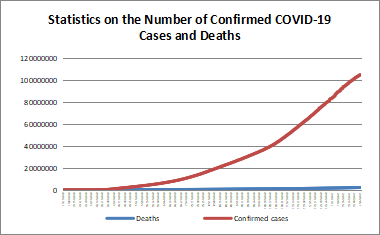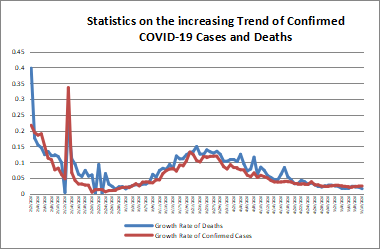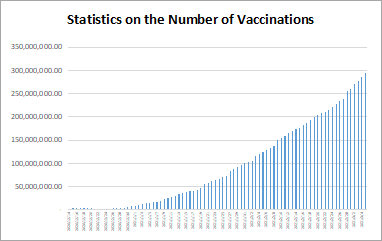WTO DDG Gave Her Opinion on Addressing the Triple Crisis of COVID-19, Conflict and Climate Change
Time:2022/04/29 BJT
1. Key concerns
In her opening remarks at the 7th Annual AGOA Spring Conference on April 19, 2022, World Trade Organization (WTO) Deputy Director-General (DDG) Angela Ellard discussed the triple crisis of COVID-19, conflict and climate change, and how trade and the WTO can address these threats.
DDG Angela Ellard first shared her view on the COVID-19 situation. The COVID-19 pandemic exacerbated global income inequality, both within and between countries, and set back economic progress by a decade or more. After two years of the pandemic, there is a relatively steady supply of vaccines. But access to vaccines and vaccination rates remain inequitable. According to the WHO, only 15% of Africans have been fully vaccinated, and 15 African countries have vaccinated less than 10% of their population. As such, the establishment of the mRNA vaccines hub and transfer of technology to African countries is an important action in establishing manufacturing capacity in Africa. Moreover, the establishment of the vaccine manufacturing supply chains in Africa must be accelerated.
At the WTO, we have been acting on the pandemic in two streams. Under the first stream, WTO worked with a small informal group of key ministers to converge on a meaningful and acceptable proposal regarding intellectual property and vaccines to be referred. The second stream of the pandemic work concerns the trade-related aspects of the pandemic response, such as trade facilitation, export restrictions, and regulatory cooperation. Members are encouraged to work in various configurations to narrow down the differences.
DDG shared her views on the conflict between Russia and Ukraine and its impact on global trade. The severe economic tumult will reverberate far beyond Ukraine’s border. The double blow of the pandemic and the war has disrupted supply chains, curbed economic growth and lowed expectations for trade expansion. Economists anticipated that this year global trade growth will drastically cut from 4.7% which was forecast last October to 3%, and this projection could deteriorate further. The most pressing trade issue now is food security. Food prices were already historically high due to the prevalence of pandemic. The war has made it virtually impossible to export food from many ports in the Black Sea region. The UN estimates that 35 African countries that rely on food exports from this region face the prospect of a devastating spike in food prices. DDG said that more cooperation and trade between countries are needed to avoid an economic calamity, as well as panic buying, hoarding of food and export restrictions.
At last, DDG stated WTO’s efforts on addressing the climate change. The latest report of the Governmental Panel on Climate Change (IPCC) on climate change has been seen as the “last warning” before the key Paris Agreement goals out of reach. WTO highlighted two ways in which it can help. First, to transition to a low-carbon economy, countries need affordable access to advanced technologies, and open trade plays a critical role in providing such access. Lowering barriers to trade in environmental goods and services helps facilitate technology transfer for climate change mitigation and adaptation. Second, there is an urgent need for coordination and collaboration on carbon pricing. A common approach is needed to carbon pricing, to ensure that measures are not adopted in a discriminatory manner and that the needs of developing countries are addressed to enable a just transition.
2.Briefing on COVID-19 Pandemic(Issue No.189)
According to WHO statistics, calculated numbers of confirmed COVID-19 cases and deaths reached 503,131,834 and 6,200,571 by April 19, 2022. South Korea, France, Germany, Italy and Japan were the five countries (regions) with the highest number of new confirmed cases in the past seven days. South Korea, France, Germany, Italy and Japan were the five countries (regions) with the highest number of new deaths in the past seven days.


https://covid19.who.int/
WHO Convened the eleventh meeting of the Emergency Committee for COVID-19 to discuss the current situation of the pandemic. Statistics from Our World in Data, an online research site of the University of Oxford, presented that 11,483,130,394 doses had been administered globally by April 19, 2022. On April 11 2022, WHO convened the eleventh meeting of the Emergency Committee for COVID-19 and discussed key issues including SARS-CoV-2 variants; use and equitable access to antivirals; vaccine protection and global shifts in the supply and demand for COVID-19 vaccines; hybrid immunity; potential future scenarios for SARS-CoV-2 transmission and challenges posed by concurrent health emergencies; and how Member States are responding to the COVID-19 pandemic. The Committee also noted with concern the growing fatigue among communities worldwide in response to the COVID-19 pandemic and challenges posed by the lack of trust in scientific guidance and governments. The Committee recognized that SARS-CoV-2 is a novel respiratory pathogen and continues to have unpredictable viral evolution, which is compounded by its wide-spread circulation and intense transmission in humans, as well as widespread introduction of infection to a range of animal species with potential for animal reservoirs to be established. SARS-COV-2 is continuing to cause high levels of morbidity and mortality, particularly among vulnerable human populations. In this context, the Committee raised concerns that the inappropriate use of antivirals may lead to the emergence of drug-resistant variants. The Committee stressed the importance of maintaining public health and social measures to protect vulnerable populations, and maintaining the capacity to scale up PHSM if the epidemiological situation changes.

https://ourworldindata.org/covid-vaccinations
In terms of the restrictions taken by countries (regions), there are different levels of measures adopted against COVID-19. Most countries (regions) are gradually relaxing their previous pandemic restriction measures to different levels, and the booster dose of COVID-19 vaccination is gradually rolling out. In America, the US launched the latest COVID-19 prevention measures "Test to Treat", that is, one-stop service for testing and treatment. Hundreds of locations across the US have established sites and are now officially available to the public. A patient who tests positive can directly receive free oral medication in the designated site and go home for treatment without going to the hospital first or being quarantined. In Europe, Italy planed to start the fourth dose, that is, the second booster dose, of the COVID-19 vaccine for people over 80 years of age and people over 60 years of age who are at risk from April 12, with a minimum of 120 days between the second booster dose and the previous one. Switzerland’s peak body for therapeutic medicine has announced the temporary approval of Novavax COVID-19 vaccine. The Greek government announced on April 13 that it would lift measures against the COVID-19 in the summer, saying it would no longer require mandatory wearing of masks and the presentation of vaccination certificates in shops during the tourist season. In Asia, the South Korean government adjusted the four-tier infectious disease level of COVID-19 from the highest Class 1 to Class 2, and the diagnosis, examination, and treatment will apply the standard of the general medical system throughout the process. The Expert Committee of the Ministry of Health, Labour and Welfare of Japan agreed to approve a new COVID-19 vaccine produced by the US company Novavax, which will be approved as soon as possible. The Novavax vaccine is a two-dose vaccine that can also be used as the booster shot.


